
Catalog excerpts

The CTA88 chip is a simple encoder/decoder for use with ISM/SRD band telecommand modules. It permits a simple, one way wireless link to be established, for simple remote control applications, with a minimum of effort and no customer software input. These TX and RX application boards are designed to allow easy evaluation of the CTA88 device in elementary jobs. They provide a simple 8 channel implementations of remote control, using either LMT/LMR or BiM footprint wireless radio modules. ■ 8 bit address and 8 bit data select switches ■ 8 relays to control mains powered devices rated up to 8A, 250VAC/30VDC ■ Visual indication of valid code received and active relays ■ RF module range testing ■ 8 Push buttons for momentary control of relays ■ Momentary, Latched outputs ■ Dynamic relay state changes ■ Setup is simple as Plug-and-Play ■ RF Remote Control Demonstration Kit Contents The CTA88 application kit is supplied with the following contents: ■ 2 CTA88-000-DIL or 1 CTA88H (500mW) Encoder board ■ 1 CTA88 Decoder board ■ 1 Radiometrix Transmitter module (ordered separately) ■ 1 Radiometrix Receiver module (ordered separately) ■ 1/4-wavelength monopole or helical antennas ■ 8 Jumper Links ■ External power supply or 12 V DC power adaptor Radiometrix Ltd CTA88 application board manual
Open the catalog to page 1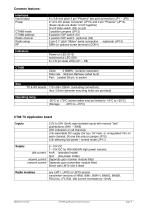
Common features: Radiometrix Ltd CTA88 application board manual page 2
Open the catalog to page 2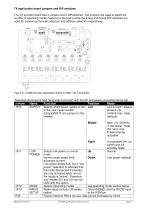
TX application board jumpers and DIP switches The TX encoder board has 4 jumpers and 2 DIPswitches. The jumpers are used to select the number of operating modes featured in the board while the 4 way and 8 way DIP switches are used for frequency channels selection and address selection respectively. Assumed the board is held "long side horizontal" with the RF and power connectors at the top Radiometrix Ltd CTA88 application board manual page 3
Open the catalog to page 3
TX application board DIP switches The TX application board features an 8 way (S1) and a 4way (S2) DIP switches. The optional 4 way DIP switch which is used for parallel frequency channel select is only required when our multi channel LM series radios like LMT1 / LMT2 s are used. The 8-way DIP switch is used to set an 8 bit (256 combinations) unit address. CTA88 RX Application board Radiometrix Ltd CTA88 application board manual page 4
Open the catalog to page 4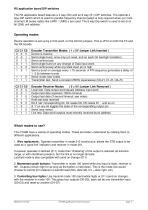
RX application board DIP switches The RX application board features a 4 way (S2) and an 8 way (S1) DIP switches. The optional 4 way DIP switch which is used for parallel frequency channel select is only required when our multi channel LM series radios like LMR1 / LMR2 s are used. The 8 way Dip switch is used to set an 8 bit (256) unit address. Operating modes Device operation is set up by a 3 bit word, on the C0-C2 jumpers. This is JP12 on both the TX and the RX boards. Which modes to use? The CTA88 have a variety of operating modes. These are better understood by relating them to different...
Open the catalog to page 5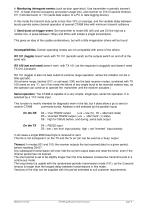
4. Monitoring infrequent events (such as door open/shut): Use transmitter in periodic transmit (101, to keep channel occupancy and power usage low), and receiver on 010 (3 second timeout), 011 (hold last burst) or 110 (serial data output, to a PC or data logging device). In this mode the transmit duty cycle is less than 10% on average, and the variable delay between bursts permits same channel operation of several CTA88 links with minimum transmit collisions 5. Send burst on trigger event: Set transmitter to mode 000 (off) and use C0 line high as a 'strobe' line. A pulse between 100µs and...
Open the catalog to page 6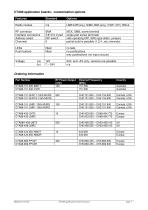
CTA88 application boards: customisation options Radiometrix Ltd CTA88 application board manual page 7
Open the catalog to page 7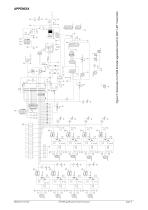
Figure 5: Schematic of CTA88 Encoder application board for BiM / LMT Transmitter CTA88 application board manual
Open the catalog to page 8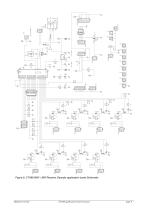
Figure 6: CTA88 BiM / LMR Receiver Decoder application board Schematic CTA88 application board manual
Open the catalog to page 9
Figure 7: Schematic of CTA88H Encoder application board for AFS2 Amplifier, LMT2 Transmitter
Open the catalog to page 10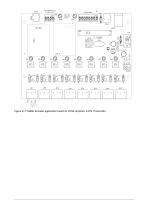
Figure 8: CTA88H Encoder application board for AFS2 Amplifier, LMT2 Transmitter
Open the catalog to page 11
Figure 10: CTA88 Encoder application board SHX1T/ UHX1T/ FPX3T Transmitter
Open the catalog to page 13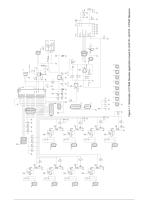
Figure 11: Schematic of CTA88 Decoder application board for SHX1R / UHX1R / FPX3R Receiver
Open the catalog to page 14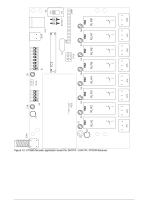
Figure 12: CTA88 Decoder application board for SHX1R / UHX1R / FPX3R Receiver
Open the catalog to page 15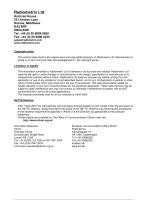
Copyright notice This product data sheet is the original work and copyrighted property of Radiometrix Ltd. Reproduction in whole or in part must give clear acknowledgement to the copyright owner. Limitation of liability The information furnished by Radiometrix Ltd is believed to be accurate and reliable. Radiometrix Ltd reserves the right to make changes or improvements in the design, specification or manufacture of its subassembly products without notice. Radiometrix Ltd does not assume any liability arising from the application or use of any product or circuit described herein, nor for...
Open the catalog to page 16All Radiometrix catalogs and technical brochures
-
LNM2H
13 Pages
-
NiM1B
13 Pages
-
VX2M
9 Pages
-
WRX2C
9 Pages
-
MSR3
8 Pages
-
LMR0
10 Pages
-
SAT3
5 Pages
-
NTX2B
13 Pages
-
NTX0
8 Pages
-
MTX3
10 Pages
-
MTX2
10 Pages
-
BiM3H
8 Pages
-
QPX1
8 Pages
-
QPT1
8 Pages
-
AiM1
9 Pages
-
Universal Evaluation Kit
27 Pages
-
TDL2A Evaluation Kit
4 Pages
-
SPM2/RPM Evaluation Kit
7 Pages
-
SP2 Evaluation Kit
12 Pages
-
M48A Application Board
12 Pages
-
M1144
8 Pages
-
DXT / DXR
7 Pages
-
Control44 Evaluation Kit
7 Pages
-
CTA28 App. boards
11 Pages
-
BL118
7 Pages
-
BD118
5 Pages
-
PAN1311
2 Pages
-
PAN1310
2 Pages
-
m48a
11 Pages
-
LMR2
11 Pages
-
TDL3F
10 Pages
-
krx2
9 Pages
-
KTX2
8 Pages
-
RPM3
15 Pages
-
ENX1
11 Pages
-
NiM2
11 Pages
-
BiM1
15 Pages
-
RX3G
6 Pages
-
PLR2
12 Pages
-
MSR3
8 Pages
-
CXR2
12 Pages
-
COR3
8 Pages
-
TX2S
7 Pages
-
CXT2
12 Pages
-
KRX2
9 Pages
-
KFX2
4 Pages
-
KDEC
5 Pages
-
TXL2
11 Pages
-
Radiometrix
20 Pages




















































